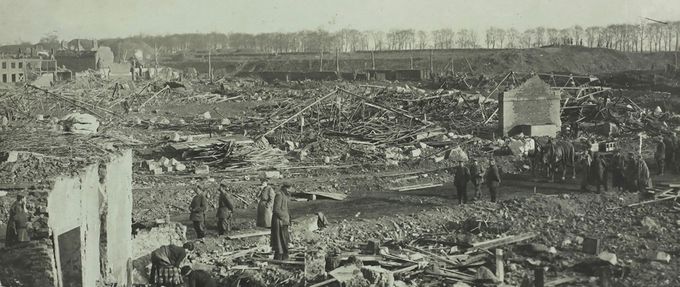The Great War was a four-year long event that irrevocably changed the history and culture of our planet. The clash that became known as World War I, after the nickname "the war to end all wars" had proven itself to be a misnomer, was one of the deadliest conflicts in history. Over the decades, writers have turned to the novel form to dissect the war and examine its aftermath. Here are 17 novels that tackle World War I through various lenses.
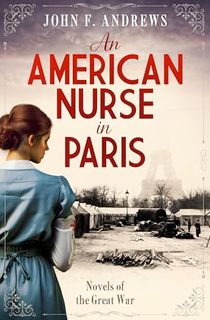
An American Nurse in Paris: Novels of the Great War
In 1918 Paris, determined medical journalist Alice Simmons must abandon her dream of becoming a war correspondent after a powerful officer's sexual assault leads to a campaign of false accusations. Desperate to remain in France and clear her name, Alice joins an American Red Cross hospital, where the courage of her wounded soldiers from Belleau Wood reignites her capacity for compassion and love. Her secret journalistic investigation into the forgotten casualties of war becomes her last chance to restore her honor and expose a vital truth.
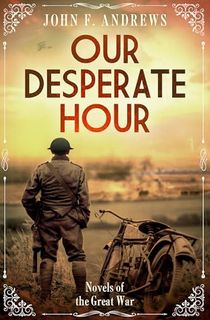
Our Desperate Hour: Novels of the Great War
With the outcome of World War I balanced on a knife's edge, US Army Major Ab Johnson volunteers for a non-combat role in France, determined to reconcile with his estranged son, Jack, a Marine Second Lieutenant on the front lines. But as Ab's desperate search leads him through the chaotic, casualty-swamped medical system, his quest collides head-on with the pivotal, blood-soaked Battle of Belleau Wood. Intertwining with the fates of an arrogant surgeon, a searching corpsman, and a patriotic private, Ab must navigate the killing fields to save the son he risked everything to find.
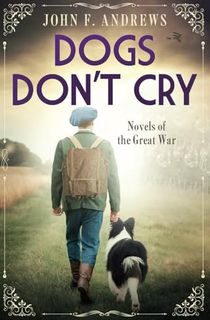
Dogs Don't Cry: Novels of the Great War
On the eve of a German invasion, two French teens, the self-doubting Marcel and his gravely ill sister Geneviève, are suddenly orphaned and must flee their home. Their desperate journey to find a distant relative near Paris depends entirely on their family dog, Abby, who is the only link to the man they seek. Confronting chaos, fear, and near-fatal hardship, the children must find resilience within themselves while trusting Abby's courage and determination to sustain their improbable flight through the tidal wave of war.
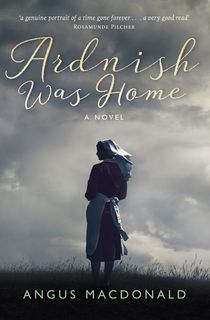
Ardnish Was Home
Lying wounded and blinded in a Gallipoli hospital, Scottish soldier Donald Peter Gillies escapes the horror of war through shared stories of his beloved Highlands home and the Welsh valleys of his compassionate nurse, Louise. Their growing romance is jeopardized when they are isolated from Allied forces, forcing them to attempt a perilous, desperate escape across Turkey toward Greece. Beginning an acclaimed trilogy, this novel is a sweeping tale of memory, love, and the generational impact of war on a single Scottish family.
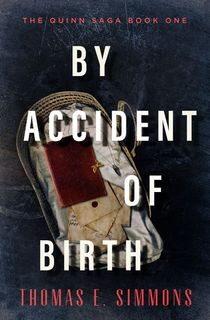
By Accident of Birth
The life of Beverly Bethany Quinn begins with a battlefield injury in 1863, setting the stage for an epic journey that connects the Civil War to the Cuban independence movement and the trenches of World War I. When the British Crown calls on her to facilitate a secret arms sale in 1915, 52-year-old Bethany is forced to uncover a decades-old family secret that ties her fate inextricably to global conflict. Beginning her quest with her mother's diary, Bethany must confront her family's legacy of love, betrayal, and survival to escape the perils of war once and for all.
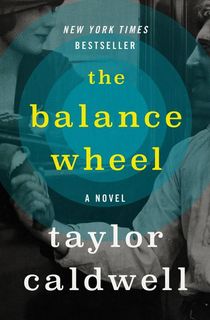
The Balance Wheel
As the winds of war sweep Europe in 1913, German immigrant Karl Wittmann struggles to save his family's Pennsylvania steel business from the anti-German prejudice and ruthless war profiteers who seek to remake the industry. While battling his profit-driven brothers and fearing his son's deployment overseas, Karl finds solace and an unexpected ally in his sister-in-law, Phyllis. Their unlikely romance is a dangerous complication in this New York Times Bestseller about family loyalty, the moral price of industry, and the fight for survival on the eve of WWI.
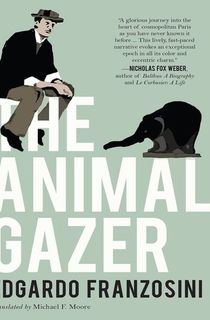
The Animal Gazer
As the Belle Époque crumbles and World War I looms, eccentric sculptor Rembrandt Bugatti—brother of the famous automaker—leaves Milan for Paris, where he obsesses over and molds the baboons and panthers of the municipal zoos. Identifying deeply with the animals' plight in captivity, his world collapses entirely when German bombs force a heart-wrenching decision about the fate of the zoo's inhabitants in Antwerp. This hypnotic biographical novel follows the fragile artist's final, poignant journey as he searches for empathy in a world descending into madness.
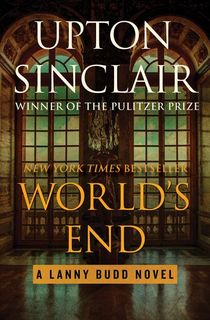
World's End
Upton Sinclair wasn't just a writer. He was a legendary muckraker who spent decades of his life fighting against corporate and political injustices, from the horrific conditions of the American meatpacking plants to the corruption of the oil industry. World's End, published in 1940, is the first novel in his 11-book long Lanny Budd series, following an idealistic young American on the eve of World War I as he witnesses the ever-changing world and its exploitative roots. Sinclair's prescience is eerily focused and his work has, for better or worse, never become irrelevant.
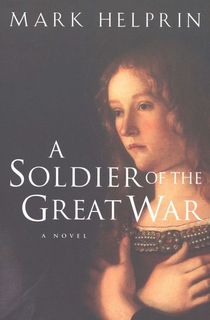
A Soldier of the Great War
Mark Helprin is best known for writing Winter's Tale, but his other novels are similarly dense, sumptuous, and lavishly detailed in their stories of love and humanity. A Soldier of the Great War follows Alessandro Giuliani, the young son of a prosperous Roman lawyer, whose idyllic life is brought to a grinding halt by the dawning of The Great War. 50 years later, he tells his story to an illiterate young factory worker, from his heroic endeavors to his time as a prisoner of war to his ultimate desertion of his troops.
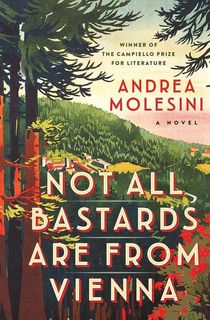
Not All Bastards Are from Vienna
Italian novelist Andrea Molesini won the nation's prestigious Campiello Prize for his debut novel, Non tutti i bastardi sono di Vienna, known in English as Not All Bastards Are from Vienna. The historical drama is set in Refrontolo, a small town north of Venice, which is invaded by Austrian soldiers as the Italian army is pushed to the Piave river.
Here lives the Spada family, who own the largest estate in the area. It soon becomes requisitioned by enemy troops, with the military taking over their beloved ancestral home. The resistance also has plans for the estate, however; and the family's youngest member, 17-year-old Paolo, is recruited to help with a covert operation that could change the outcome of the war.
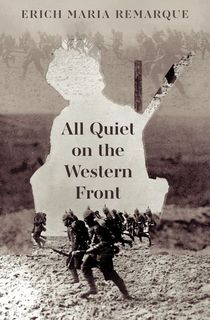
All Quiet on the Western Front
First published in 1929, the German novel All Quiet on the Western Front was an immediate phenomenon as well as a lightning rod for controversy. The novel, along with its sequel, The Road Back, were among the many books ordered to be destroyed by the Nazis when they came to power. Its stridently anti-war stance was seen as a sign of cultural degeneracy, a kind of propaganda that several governments forbade. Almost a century later, All Quiet on the Western Front has lost none of its power in its stark depiction of German soldiers' traumatic experiences during World War I and the pain of losing one's friends in a futile war of attrition.
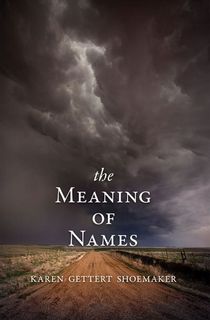
The Meaning of Names
Set in 1918 in the farming community of Stuart, Nebraska, The Meaning of Names shows how the ripples of war could be felt even thousands of miles away from the battlefields of Europe. The protagonist is Gerda Vogel, an American woman of German descent trying to raise her family as she faces the growing poison of anti-German prejudice, a fractured relationship with her disapproving parents, and the draft forcing her dear husband to the front lines.
Related: 22 World War 1 Movies That Take Viewers into the Trenches
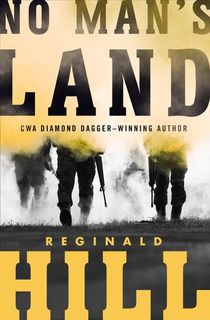
No Man's Land
Award-winning mystery writer Reginald Hill turned his attention towards the First World War with No Man's Land. A group of soldiers, led by an Australian named Viney, have fled the trenches of the Western front. Some are shaken by what they've seen on the front lines. Others have no desire to be a hero. Some are friends. Others are constantly on the verge of fighting. They are bound together by their newfound status as deserters, which means that the military police are on their tail. The group scavenges the brutalized landscape of eastern France, trying to survive, and eager to find a way to escape the evils of war. But is such an escape even possible?

Birdsong
Perhaps the best-known novel by British writer Sebastian Faulks, 1993's Birdsong was listed as the nation's 13th favorite book in a 2003 survey called The Big Read. This delicately drawn novel of war and family follows two main characters living at different times: Stephen Wraysford, a British soldier on the front lines in the 1918 Battle of Amiens; and Elizabeth Benson, his granddaughter living in the 1970s who is trying to understand her ancestor's wartime experiences. Faulks is especially interested in the trauma of war and its intergenerational nature, reverberating through the decades and impacting those who never experienced it firsthand.
Related: Our Forgotten Heroes: Why Don’t We Talk About World War I?

Regeneration
Boker Prize Award winning author Pat Barker wrote a trilogy of novels centered on the First World War: Regeneration, The Eye in the Door, and The Ghost Road. Rather than detail the nitty-gritty of wartime or the battles that have inspired many a writer, Barker is interested in the treatment of a decorated English officer who is sent to a military hospital after publicly declaring he will no longer fight.
Inspired by her grandfather's experience in World War I, Barker digs into themes of masculinity, mental health, social hierarchy, and the wasteful nature of war. The trilogy includes real historical figures, such as the psychiatrist W.H.R. Rivers, who pioneered treatments of post-traumatic stress disorder during and after the war, as well as Siegfried Sassoon and Wilfred Owen, two poets whose work defined the era.

War Horse
One of the most celebrated children's authors in the UK, Michael Morpurgo's novels frequently deal with nature and humanity's relationship to it. Many of his books are told from the perspectives of animals, which is the case with 1982's War Horse. The story recounts the experiences of Joey, a horse bought by the Army for service in France during World War I, and the attempts of his young owner Albert to bring him back home.
Related: 11 Absorbing Novels You'd Never Guess Were Historically Accurate
Nowadays, people probably know War Horse best for its multi-award-winning stage adaptation, and the Steven Spielberg movie that followed. But it's worth returning to the source material to see a striking retelling of war from a unique perspective that's easily understood by children without patronizing them.

The Alice Network
A year into what would become known as the Great War, Eve Gardiner signs up to fight against the Germans by working as a spy in enemy-occupied France. There, she's trained by the "queen of spies"—Lili, a member of the Alice Network, a real-life network of female agents. Over 30 years later, American college girl Charlie St. Clair is pregnant, unmarried, and on the verge of being thrown out by her very proper family. She meets Eve, who is haunted by her time among the Alice Network and has been driven to the brink of ruin. Soon the women are on a new mission to find out the truth about the past.
Feature image: Museums Victoria / Unsplash
